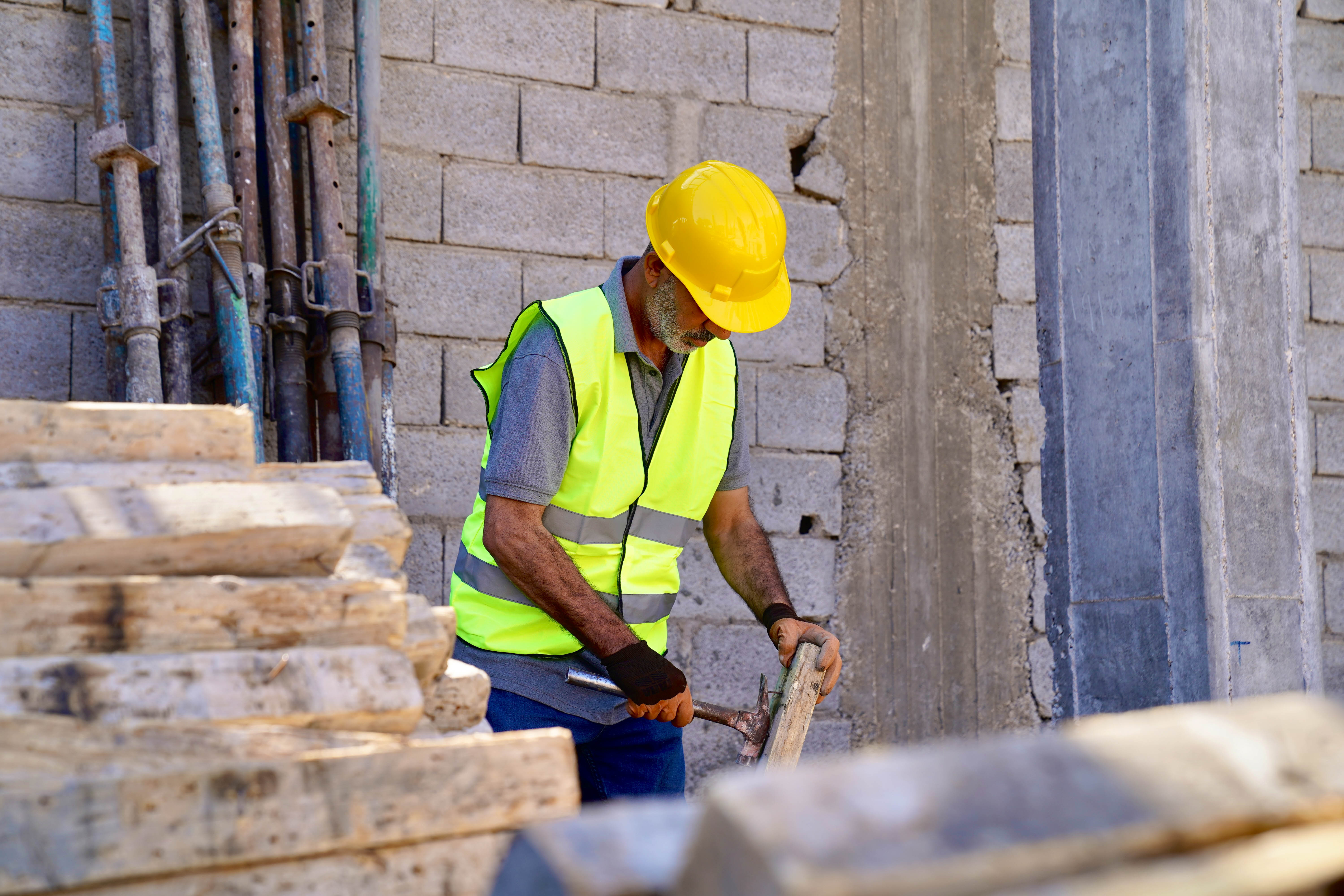Crafting hope and community after displacement
October 31, 2024

In Al Qaim, where the sun sets over the resilient landscape, Nassem's story unfolds—a tale of resilience, hope, and renewal. At 53, he has faced profound challenges, including displacement from his home and the loss of his job due to the turmoil in his homeland. For four years, Nassem and his family lived in the Al-Hol camp, navigating harsh conditions and uncertainty, before finally returning home in 2022. Yet, the road to reintegration was steep, marked by community rejection and financial insecurity.
Nassem's life began to change dramatically when he was accepted into a business support program implemented by UNDP and World Vision with generous support from USAID. This initiative offered him not just financial aid but a lifeline—a business grant specifically for his passion: blacksmithing.

“Receiving this grant means more than just money to me,” Nassem shares, his eyes gleaming with newfound hope. “It’s a chance to rebuild my life.” With this support, he plans to set up a small workshop, transforming his skills into a sustainable source of income and provide for his family. The grant will enable him to purchase advanced tools and materials, expanding his operations and improving the quality of his work.
The impact of the program extends far beyond financial stability. Through extensive business management training, Nassem learned essential skills—financial planning, marketing, and operational management, helping him find a sustainable livelihood. “This training has equipped me with the knowledge to turn my dreams into reality,” he explains, emphasizing the importance of leadership and effective communication in running a successful business.

However, Nassem’s journey isn’t just about economic recovery; it highlights the collective effort of reintegration and the significant role it plays in fostering social cohesion. His active engagement in the program has allowed him to connect with diverse community members, bridging the gap between returnees and locals. Through his business and personal efforts, Nassem has become an integral part of the community, providing services and opportunities that benefit his community.
“Being part of this group has given me a sense of belonging,” he says. “I’ve built relationships that empower me to face future challenges.” Engaging with other community members not only helped him overcome the fear of isolation, but has also reinforced his role in rebuilding community bonds.
Regular psychological support sessions further strengthened his resilience, helping him manage stress and rebuild his emotional well-being. “The psychological support has alleviated much of the anxiety I felt,” he reflects. “I feel more equipped to handle whatever comes my way.”

As he prepares to launch his business, Nassem is filled with optimism for the future. He envisions not only providing for his family but also creating jobs for others in his community. “By empowering myself, I hope to empower others,” he states, driven by a desire to contribute to the local economy and foster unity among those who have shared similar experiences.
For Nassem, this grant represents a pivotal moment—a bridge from a painful past to a hopeful future. His journey illustrates the transformative impact of targeted support, skill development, and community engagement. With renewed purpose, he stands ready to embrace the opportunities ahead, committed to building a stable, fulfilling life for his family and contributing to a brighter future for his community.
In Nassem’s words, “Together, we can overcome the challenges of displacement. Together, we can build a brighter future.”
Funded by USAID, this initiative is underscoring the collaborative effort to support individuals like Nassem in their journey toward reintegration and community building.

 Locations
Locations


